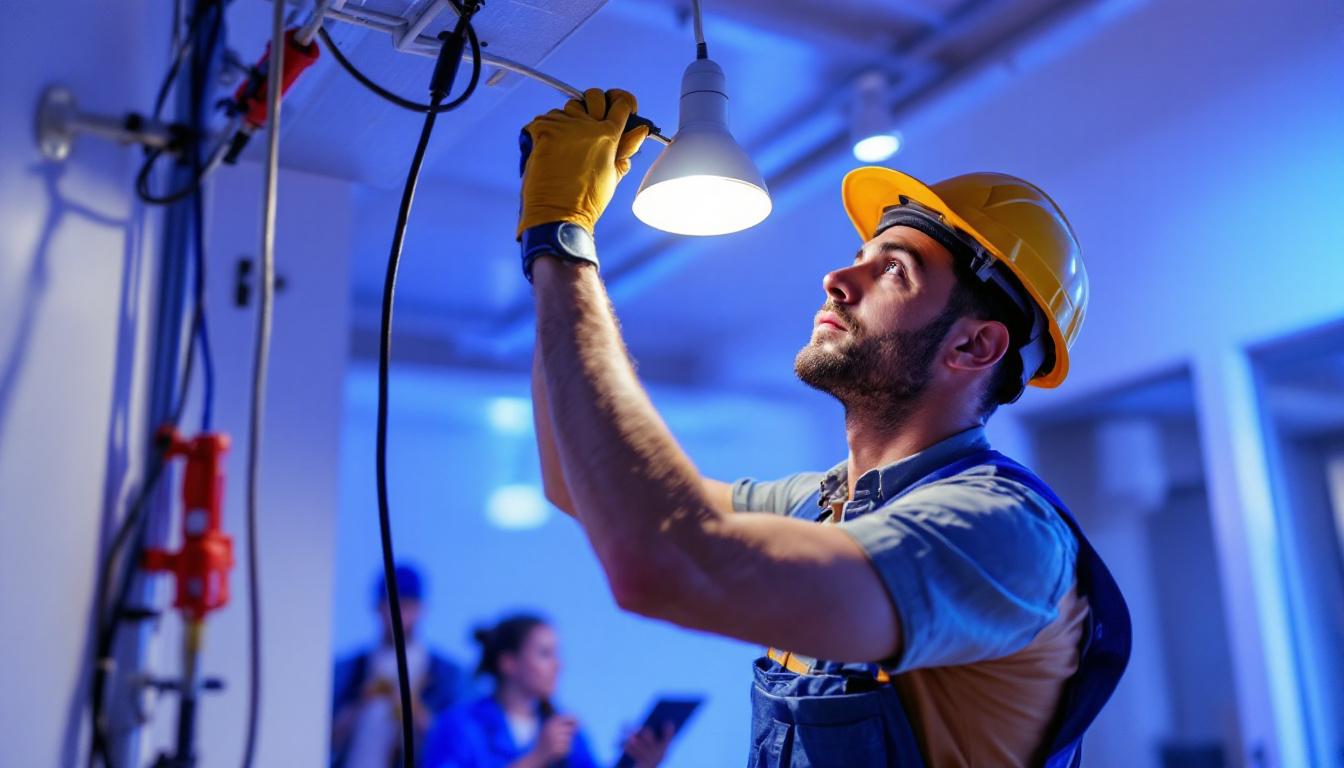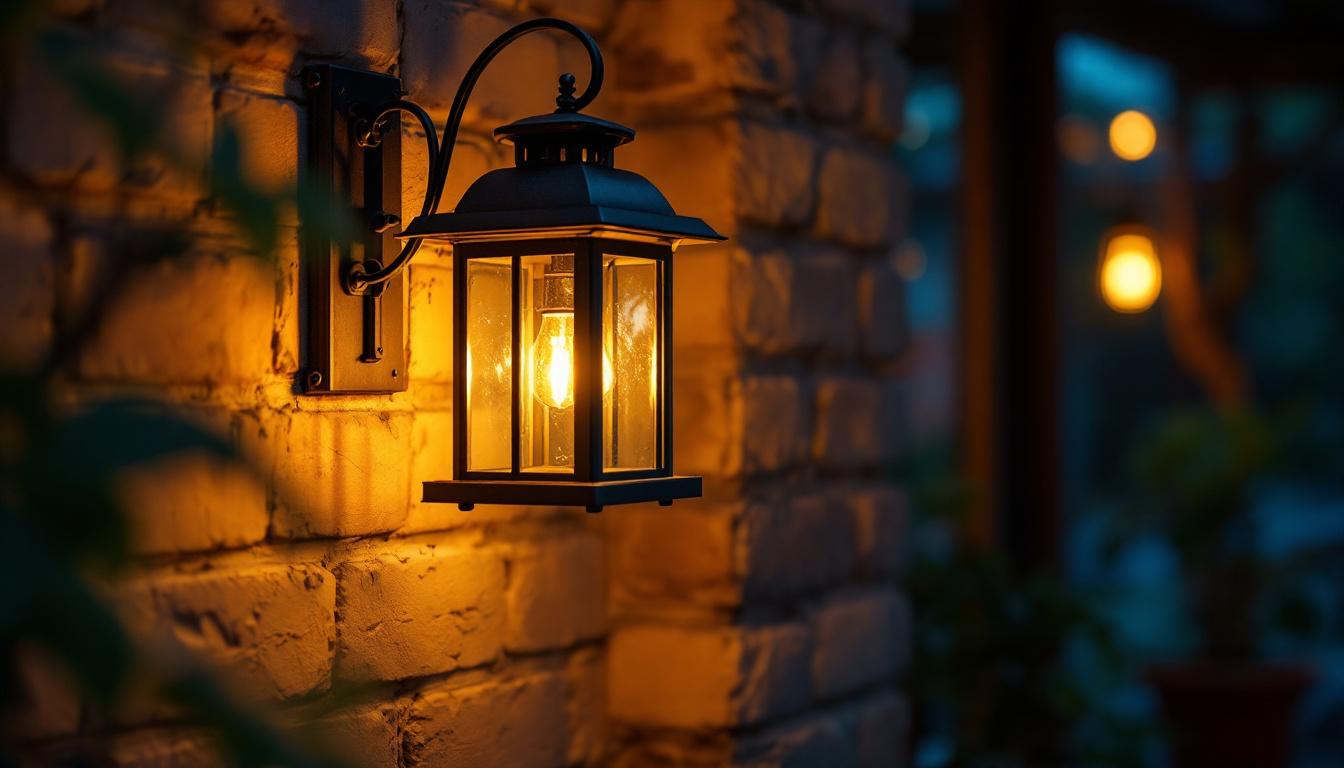
Grounding wire is a crucial component in electrical installations, particularly for light fixtures. For lighting contractors, understanding the importance of grounding wire is essential not only for compliance with safety regulations but also for ensuring the longevity and reliability of lighting installations. This article delves into the significance of grounding wire, the benefits it provides, and the best practices for its implementation in lighting projects.
Grounding wire serves as a safety mechanism that protects both the electrical system and individuals from electrical faults. It provides a low-resistance path for electrical current to flow back to the ground in the event of a fault, such as a short circuit. This helps prevent electrical shock and reduces the risk of fire hazards.
In the context of light fixtures, grounding wire connects the metal parts of the fixture to the ground. This is particularly important for fixtures that are installed in areas where moisture is present, such as bathrooms or outdoor spaces. The grounding wire ensures that any stray electrical current is safely directed away from the user, thereby enhancing overall safety. Additionally, the grounding system must be properly installed and maintained to ensure its effectiveness; any breaks or corrosion in the grounding wire can compromise the entire safety mechanism, making regular inspections a critical part of electrical maintenance.
Furthermore, grounding wires are typically made of copper or aluminum, materials known for their excellent conductivity and resistance to corrosion. The choice of material can depend on various factors, including the specific application, environmental conditions, and local building codes. In some cases, grounding wires are also coated with protective materials to enhance their durability and resistance to environmental elements, particularly in outdoor installations where exposure to moisture and temperature fluctuations can lead to deterioration over time.
Electrical safety is paramount in any installation, and grounding plays a vital role in achieving this. By connecting electrical systems to the earth, grounding minimizes the risk of electrical shock. If a fault occurs, the grounding wire allows excess electricity to dissipate safely into the ground, reducing the chance of injury to individuals who may come into contact with the fixture.
Moreover, grounding helps to protect sensitive electronic components within light fixtures. In the event of a surge, such as a lightning strike or power fluctuation, the grounding wire can divert excess voltage away from the fixture, preventing damage and ensuring the longevity of the lighting system. This is particularly crucial in modern lighting setups that often include smart technology and LED components, which can be more susceptible to voltage spikes. By providing a reliable grounding path, these systems can operate more safely and efficiently, reducing the likelihood of costly repairs or replacements.
For lighting contractors, adherence to local electrical codes and standards is non-negotiable. Most electrical codes require the use of grounding wires in all electrical installations, including light fixtures. These regulations are designed to ensure the safety of both the installation and its users.
Failure to comply with these codes can lead to serious consequences, including fines, legal liability, and increased risks of electrical hazards. Therefore, understanding the grounding requirements specific to the region of installation is essential for lighting contractors. In addition, many jurisdictions require that electrical work be performed by licensed professionals who are familiar with the latest codes and safety practices. This not only protects the contractor from potential legal issues but also provides peace of mind to clients, knowing that their electrical systems are installed correctly and safely. Regular training and certification updates for contractors can also help ensure that they remain knowledgeable about evolving standards and technologies in the field.
Incorporating a grounding wire into light fixture installations offers numerous benefits that extend beyond mere compliance. These advantages can enhance the overall quality and safety of the installation, making it a worthwhile investment for lighting contractors.
The primary benefit of grounding wire is the enhanced safety it provides for users. By effectively channeling stray currents away from the fixture and into the ground, grounding wires significantly reduce the risk of electrical shock. This is especially critical in environments where moisture is present, as wet conditions can increase the likelihood of electrical hazards.
Moreover, grounding wires contribute to a safer environment for maintenance personnel who may need to service the fixtures. Knowing that the installation is properly grounded provides peace of mind and reduces the risk of accidents during maintenance activities.
Electrical surges can occur for various reasons, including lightning strikes, power outages, or fluctuations in the electrical grid. Grounding wires act as a protective barrier for light fixtures, diverting excess voltage away from sensitive components. This can prevent costly damage to the fixtures and ensure they remain operational for longer periods.
By investing in proper grounding techniques, lighting contractors can offer their clients a more reliable lighting solution, minimizing the need for repairs or replacements due to electrical surges. This not only enhances customer satisfaction but also builds a reputation for quality and reliability in the contractor’s services.
Grounding wires contribute to the overall performance of light fixtures. By providing a stable electrical environment, they help to reduce flickering and other performance issues that can arise from electrical interference. This stability is crucial for maintaining consistent lighting levels and ensuring that fixtures operate as intended.
Additionally, the longevity of light fixtures can be significantly improved through proper grounding. By protecting against electrical faults and surges, grounding wires help to extend the lifespan of the components within the fixture, ultimately leading to lower maintenance costs for clients.
To maximize the benefits of grounding wire in light fixture installations, lighting contractors should follow best practices that ensure effective grounding techniques. These practices not only enhance safety but also contribute to the overall quality of the installation.
When selecting a grounding wire, it is essential to choose a wire that meets or exceeds local electrical codes. The gauge of the wire should be appropriate for the load it will carry, and it should be made of materials that provide good conductivity, such as copper or aluminum.
Contractors should also consider the environmental conditions of the installation site. For example, in outdoor settings or areas prone to moisture, using a corrosion-resistant grounding wire can prevent degradation over time, ensuring long-term reliability.
Proper installation techniques are crucial for effective grounding. The grounding wire should be securely connected to the metal parts of the light fixture and routed to a suitable grounding point, such as a grounding rod or the electrical panel. Ensuring that all connections are tight and free of corrosion is essential for maintaining a low-resistance path for electrical current.
Additionally, contractors should avoid running grounding wires in parallel with power wires, as this can create electromagnetic interference that may compromise the effectiveness of the grounding system. Instead, grounding wires should be routed separately to minimize interference and ensure optimal performance.
Regular inspections and maintenance of grounding systems are vital for ensuring ongoing safety and performance. Lighting contractors should encourage clients to periodically check the integrity of the grounding connections and the condition of the grounding wire. Signs of wear, corrosion, or damage should be addressed promptly to prevent potential hazards.
Furthermore, during routine maintenance of light fixtures, contractors should verify that grounding connections remain secure and effective. This proactive approach can help identify issues before they escalate, ensuring the continued safety and reliability of the lighting installation.
Despite its importance, there are several misconceptions surrounding grounding wire that can lead to improper installations and increased risks. Addressing these misconceptions can help lighting contractors make informed decisions in their practices.
One of the most common misconceptions is that grounding wire is optional for light fixtures. In reality, grounding is a critical safety measure mandated by electrical codes in most regions. Neglecting to install a grounding wire can expose users to significant electrical hazards, making it essential for contractors to prioritize grounding in every installation.
Another misconception is that all grounding wires are interchangeable. In truth, grounding wires come in various gauges and materials, each suited for specific applications. Selecting the appropriate grounding wire based on the installation requirements is crucial for ensuring safety and performance.
Some may believe that simply installing a grounding wire is enough to ensure safety. However, effective grounding requires proper installation techniques, regular maintenance, and adherence to local codes. Grounding wire is just one component of a comprehensive electrical safety strategy.
Grounding wire is an essential element in the installation of light fixtures, providing critical safety benefits and enhancing the overall performance of electrical systems. For lighting contractors, understanding the importance of grounding, adhering to best practices, and dispelling common misconceptions is vital for ensuring the safety and satisfaction of clients.
By prioritizing grounding wire in their installations, contractors can not only comply with regulations but also deliver high-quality, reliable lighting solutions that stand the test of time. As the industry continues to evolve, staying informed about grounding practices will remain a key aspect of successful lighting installations.
Ready to enhance the safety and performance of your lighting installations with the best grounding wires on the market? Look no further than LumenWholesale. We provide lighting contractors with the highest-quality, spec-grade lighting products at unbeatable wholesale prices. Our selection meets rigorous industry standards, ensuring you have access to reliable, high-performance lighting essentials for every project. Plus, with free shipping on bulk orders, you can stock up on premium lighting supplies without worrying about hidden fees or inflated costs. Elevate your lighting projects with the perfect blend of quality, affordability, and convenience at LumenWholesale – your destination for Wholesale Lighting at the Best Value.

Discover how lantern light fixtures can be a cost-effective solution for lighting contractors.

Discover expert strategies for lighting contractors to tackle common challenges with outdoor motion sensor lights.

Discover why basement LED lighting is a game-changer for lighting contractors.

Discover how lighting contractors can boost their business by integrating exterior sconce solar lighting solutions.